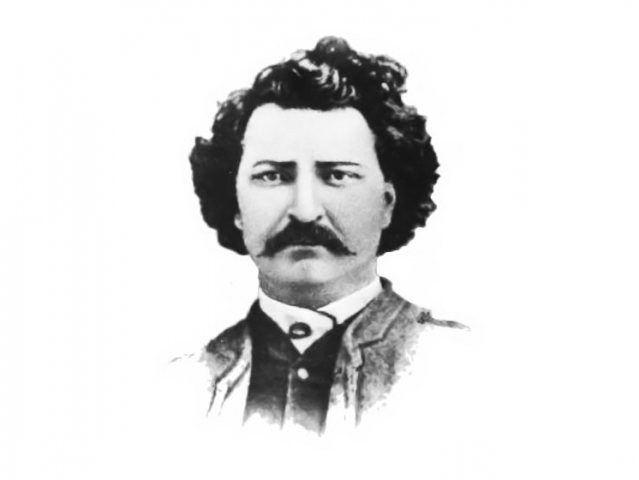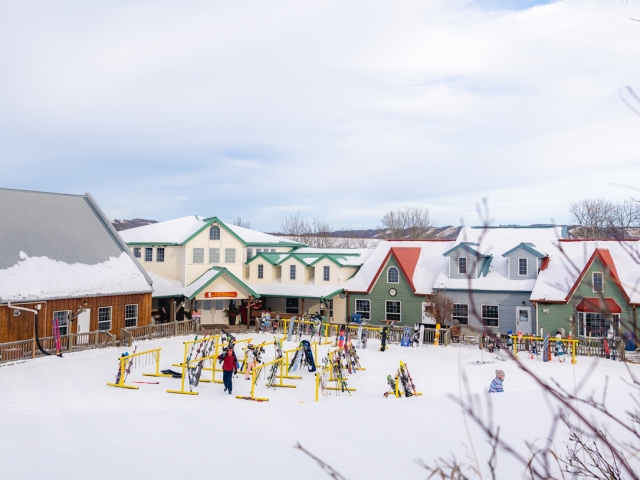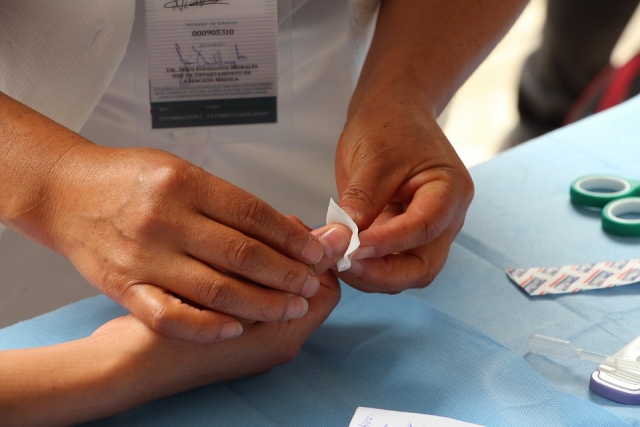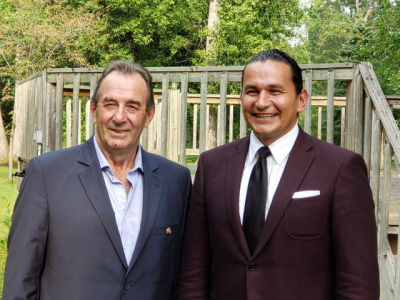 NewsNow
NewsNow
Every winter the RCMP gets called out to the scenes of tragic snowmobile collisions.
Last weekend alone, RCMP got called out to two incidents where lives were lost on snowmobiles.
Since snowmobilers are starting to head out, the RCMP has released some tips to stay safe while out on the trails.
- Know your abilities and ride within your limits. This will allow you to always be in control of your snowmobile.
- Use caution, be alert and slow down when operating on unfamiliar terrain. Always look ahead and be ready for hidden or unforeseen obstacles.
- Always ride in groups and let people know where you’re going, the route you will be taking, and when you expect to return.
- Wear the proper protective clothing, including a helmet, to keep you warm and to keep you safe.
- Be cautious of ice thickness when crossing frozen bodies of water. If you are crossing a body of water, please wear a floatation device over your outer clothing.
- RIDE SOBER. Drinking and using cannabis while operating a snowmobile don’t mix.
The RCMP hopes that by sharing these tips, they can increase the number of snowmobilers that make it home to their friends and family safely.
- Details
- Contributed by Isaac Wihak
NDP Leader Wab Kinew has introduced a private member's bill to recognize Metis leader Louis Riel as the honorary first premier of the province.
The Progressive Conservative government would have to support the bill in order for it to pass.
That will likely have to wait because it isn't expected to come to a vote before March.
Riel was central to the Red River and North-West rebellions to assert Indigenous rights, before getting hanged in Saskatchewan in 1885 for treason.
A motion passed in Parliament in 1992 recognized him as the founder of Manitoba and the province celebrates a statutory holiday on the third Monday in February as Louis Riel Day.
- Details
- Contributed by Isaac Wihak
On December 6th, 1989, Canada's worst mass shooting took place at Montreal's Ecole Polytechnique which resulted in the deaths of 14 women, and 14 others injured.
It started when the shooter, Marc Lépine, entered an engineering classroom at the school and separated the men and women. He then ordered the men to leave and shot the 9 women who remained, killing 6 of them.
He then for 20 minutes went through other areas in the school targetting women before killing himself. He stated he was "fighting feminism".
The tragic incident is now being officially acknowledged as an attack on feminists, and a memorial plaque in the city of Montreal has been changed to reflect that. Nathalie Provost, a survivor of the shooting, says it was an obvious anti-feminist act from the moment it happened.
Several events are planned every year in Montreal and other places in Canada to mark the anniversary.
- Details
- Contributed by Alec Woolston
RCMP have concluded an extensive search of homes in Winnipeg and the Interlake, possibly resulting in one of the largest meth seizures in Manitoba.
On Wednesday, the RCMP organized crime unit executed nine search warrants in Manitoba and Alberta. The nine searches were conducted in Winnipeg, St. Laurent, and Calgary.
RCMP said the massive investigation led to seizures of meth, cocaine, cash, and a number of vehicles. Police went on to say that the total amount of drugs and money seized still needs to be counted, but it is expected the largest meth seizure in the province.
RCMP arrested nine people, including a full-patch member of the Hells Angels named Kenny Erstelle.
Along with Erstelle, the people arrested include:
-40-year-old Lord Kofi Agyapong-Mensah
-31-year-old Anthony Cerezo-Brennan
-32-year-old Ryan Cerezo-Brennan
-42-year-old Akhome Manotham
-25-year-old Dillon Manotham
-34-year-old Ritchie Orbegoso
-41-year-old Linda Pelletier
-37-year-old Jian Shen
Police say that money laundering charges have been laid against the suspects, and all suspects are scheduled to be in provincial court.
RCMP added that the investigation is still ongoing and there will be more information will be released next week.
- Details
- Contributed by Josh Sigurdson
The Asessippi Ski Area and Resort’s winter season grand opening is today.
Isaiah Smith, project manager at CoPilot Collective, says it all opens at 10 in the morning.
“The slopes are all opening with some fun activities like the Get Amped Ski and Snowboard Competition. Everything’s just opening up for the winter season over at the park there.”
To go along with all the activities, there’s a ski and snowboard competition this weekend on Saturday.
Smith says they've been building to this point.
“They’ve put in so much time and effort over the last 21 years just kind of developing the resort and a space that has attractions, has value all seasons, and really gives people an opportunity to explore Manitoba in a way that we typically don’t associate Manitoba with, being one of the largest skiing areas in the prairies.”
There's a lot to look forward to this weekend, such as 26 trails, 4 snow tubing lanes, a snowshoe trail, a new powdered snow creating system, and dog sledging for those who aren’t as invested in skiing or snowboarding alternatives to have a good time while at the resort.
- Details
- Contributed by Isaac Wihak
The Government of Manitoba is planning out a cap on salaries paid to executives in the public sector and is not ruling out cutting current wages.
The PC government introduced a bill outlining “a compensation framework” for senior officials at Crown corporations, school divisions, and health authorities.
Finance Minister Scott Fielding said that the government will seek the help of a consultant to determine an appropriate salary range for different jobs.
Fielding added that are several variables to consider, but they want to make sure there is some consistency in regards to what executives are getting paid.
Under the proposed law, a public body could see funding clawbacks if they ignore the set cap.
The introduction of the bill follows a spat between Education Minister Kelvin Goertzen and the Winnipeg School Division. Goertzen stated on social media that almost 200 school division staff were making $100,000 a year or more. The superintendent’s salary is listed at over $250,000.
The NDP's finance critic Mark Wasyliw, says that the salary cap should also include executives in the private sector.
Fielding based the bill on current legislation in Alberta, where in June last year, they reduced salaries of almost all school superintendents after a review found that they were making too much. They also decreased severance payments and retirement allowances.
Fielding went on to say that it’s too early to tell of similar cuts would come into play in Manitoba.
One of the bill’s other provisions would allow the province to set a new financial reporting requirement for municipalities. The provision is aimed at ensuring fiscal years for municipalities and the province would end at the same time, as well as syncing accounting practices.
- Details
- Contributed by Josh Sigurdson
Last night, at around 9:30 pm, Prairie Mountain RCMP responded to a single-vehicle rollover in the RM of Rossburn.
The vehicle contained four people from Waywayseecappo First Nation and it was travelling west on Road 144 when it left the road and rolled several times. One of the occupants was thrown from the vehicle.
A 45-year-old female and a 31-year-old male were pronounced dead on the scene.
A 47-year-old male and a 32-year-old male were taken to hospital with non-life threatening injuries.
Police believe that the occupants were not wearing seatbelts, and speed is considered a factor in the accident.
RCMP continue to investigate.
- Details
- Contributed by Josh Sigurdson
A newly-elected NDP MLA has introduced a private member’s bill that would ban mandatory overtime for Manitoba nurses if passed.
NDP health critic Uzoma Asagwara introduced Bill 205, which would require that nurse’s employers stop using mandatory overtime as a routine, and would prevent licensing colleges from disciplining nurses who refuse to work overtime.
The Manitoba Nurses Union says mandatory overtime is a huge concern for its members and has become more prevalent as employers use it as a tool to address staffing shortages, that the union blames on the government.
The Union said that in the first quarter of 2018, nurses had already logged more mandatory overtime than all of 2017.
The private member’s bill is modelled on a law passed in New York that bans mandatory overtime, except in emergency situations.
As the bill was introduced by an opposition member, it is unlikely to catch the attention of the PC majority government.
The MNU is hoping to see a bipartisan approach towards the bill.
- Details
- Contributed by Josh Sigurdson
It’s been under 2 years since the Catalyst and Vanguard Credit Unions merged into Fusion Credit Union.
Despite being young, Fusion Credit Union has been named a Top Manitoba Employer.
Fusion CEO Ron Hedley says their goal was to be named a top employer in a couple of years, but he’s very happy with how quickly it happened.
“It’s incredible. It’s a real honour at this stage of our journey.”
Hedley goes over how they got to this point so quickly.
“The process is really just talking about us, I mean it was really just describing what we do and a little about our employees and the environment they work in, and our communities.”
That environment they have for their employees is one that’s fun, creative, and professional. Hedley adds that they know what they’re here for and that’s to serve their members.
Hedley says they like the direction the credit union is heading in and their staff shares that opinion.
“These are great people and we have had great results and we just want to continue down that path. The benefits are, that they like to come to work every day.”
Hedley says they’re constantly doing innovative things and people across the organization are always encouraged to participate.
This year, Fusion launched the Full Circle Fund, a special fund to support ambitious projects that enhance the quality of life for people of all ages in the communities served by Fusion. Recent community projects funded include the Gilbert Plains Community Hall, Whitmore School Playground in Dauphin, Foxwarren Arena, Binscarth Museum and the Oak Lake Community Hall.
Click here to see who else was named a Top Manitoba Employer.
- Details
- Contributed by Isaac Wihak
A report done by the University of Guelph and Dalhousie University says that food prices will rise between 2 and 4 percent in 2020.
The 10th annual Food Price Report shows that meat prices will increase the most at between 4 and 6 percent, with baked goods only rising about 2 percent in the coming year.
Eating out will also cost more. Prices for restaurants are set to increase 2 to 4 percent.
Seafood and vegetables will also cost 2 to 4 percent extra, with fruits increasing in price by 3.5 percent.
The report says that the average Canadian family will pay, on average, $487 more in groceries in 2020.
Manitoba, Quebec. P.E.I. and B.C. will see a higher food inflation rate thanks to strong economic forecasts, while Alberta, Saskatchewan, New Brunswick, and Nova Scotia will see below average rate increases.
Among several contributing factors of the increases, climate change is a major one, according to researchers.
In the report, the authors write that Canadian food systems will be affected by changing weather patterns, including droughts and forest fires, heavy precipitation, reduced freshwater access and rising sea levels. They added that the parts of the country that rely heavily on agriculture will struggle with a drier summer and wetter spring and winter.
The report goes on to predict that producers in Canada will have to deal with unpredictable yields, harmful heat waves, and disease and pest outbreaks.
Despite all the negative things, they see opportunities for healthier solids due in part to carbon sequestration and reduced amounts of greenhouse gas emissions through changing land-use practices, provided that climate change efforts are conducted properly.
The authors also expect that the federal carbon tax will boost food prices somewhat as well.
To read the full report, click here.
- Details
- Contributed by Josh Sigurdson
After results released yesterday showed that Manitoba students had the lowest test scores in the country, provincial education minister Kelvin Goertzen weighed in.
Goertzen said that the results of the PISA assessment are not acceptable, adding that results like these are the reason that the province launched a K-12 education review.
“Clearly, Manitobans in general, and educators in particular, are concerned about our education outcomes, and that is why we called the K-12 commission because we knew that these results have been sliding for more than a decade,” said Goertzen. “Hopefully we’ll get good recommendations that’ll put us on the path to improve results because that’s what all of us want.”
Goertzen says that even though there has been some backlash towards the K-12 commission, the PISA results shouldn’t be a condemnation of the review; it should be viewed as a justification.
When the minister was asked about whether poverty played into the results, he said that poverty can't be blamed as the only reason.
“If I was to look back to before the tests started to slide, just on a comparative basis, so if I’d go back before the mid-2000s or even the late 1990s, we would have done better in the PISA scores, but my guess is poverty was an issue then too,” said Goertzen. “It’s not necessarily the only cause because there have been times in the past where scores were much better, and yet we still struggled with the issues of poverty. It doesn’t mean it’s not a factor, but it’s clearly not the only factor.”
Goertzen is hoping that the K-12 commission discovers the root of the problem, and presents a solution going forward.
- Details
- Contributed by Josh Sigurdson


















